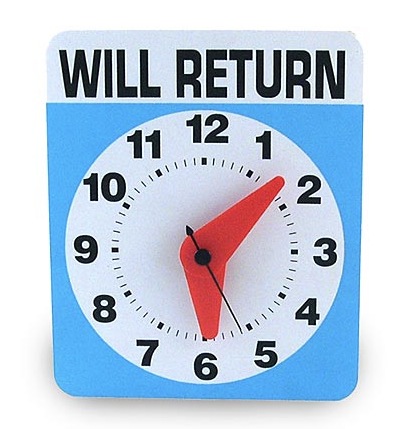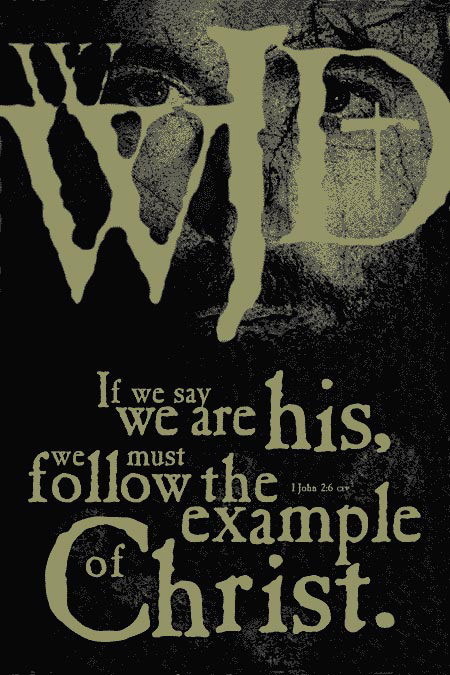
Thursday, November 12, 2009
TV Tracking

Tuesday, November 3, 2009
TV: America's Babysitter

"Children's television viewing is at an eight-year-high, according to the Nielsen Company's latest statistical parsing of Americans' TV habits. Kids ages 2 to 5 spend 32 hours a week parked in front of the tube, while 6- to 11-year-olds watch slightly less (28 hours). [mediapost.com, 10/26/09 stats]"
There are 168 hours in a week. According to this stat, on AVERAGE (meaning some kids view more, and some people view less), kids ages 2 to 5 are spending 19% of their time watching TV. That's nearly 1/5th of their time, and that includes the time they spend sleeping. 6 to 11 year olds are spending only slightly less at about 17% of their time, or roughly 1/6th. Just think about that for a bit. The leading reason why the 6 to 11 year olds spend less time watching TV? They go to school. That's it.
Go ahead and ponder that for a bit. Now, how much time do YOU spend watching TV? How about your kids? I challenge you to keep track of how much TV you watch this next week, then take a look at how much time was spent watching TV (no, I don't think watching TV is by default just "wasting time", but when done to excess, that's EXACTLY what it becomes). I'll do the same and report back next Tuesday.
Monday, October 26, 2009
I'm not dead yet
Oh yeah, and today's my 30th birthday. They say the mind is the first to go.
Tuesday, October 6, 2009
TST: Take a Break!

This weeks tip might seem contrary to the theme of Time Saving Tuesdays, but I think you'll find it fits in nicely: Take a break.

Recent studies have found that people that take regular breaks and/or naps perform better while working. People that do not take breaks start to break down and underperform due to burnout and exhaustion. I've got plenty of material below for your reading pleasure.
First, the New York Times did a study of 61 people that found that those taking a 2-hour nap did "significantly" better at repeating verbal, perception, and motor-skill tests from that morning than those given caffeine or a placebo (article summary here, full paper study here). What we tend to do is use caffeine as a substitute for rest, and our bodies weren't designed for that (yes, this is an instance of the pot calling the kettle black).
Third, you can read a nice summary of recent research in regards to the benefits of napping provided here by the Ririan Project. They do a good job of summing it all up, so instead of just reposting what they've already written, I'll just send you there. Plus, it's in Top 10 style, which is always nice.
Monday, October 5, 2009
Everything's Amazing, Nobody's Happy
Oh yeah, and if you watched the first video posted, I apologize, they changed the video from the address I pulled it from, so this one is verified as correct.
Everything is so amazing and nobody is happy... from fbg00 on Vimeo.
Thursday, September 17, 2009
Ask the Readers: Clean Comedy
Tuesday, September 15, 2009
TST: Just Say No

Today's tip is pretty simple: learn to say "No".
How many times have you felt overwhelmed? So much to do, so little time. We all have a finite amount of time. There are exactly 24 hours in a day, no matter who we are or what day it is. We, as Christians, tend to MAKE ourselves too busy. We miss out on blessings because we have no time for them.
I am speaking from experience. At one time in our lives, Clarinda and I were WAY too busy, even though the things we were too busy doing were good things to do. We taught the High School Sunday School class, Varsity Awana on Wednesdays, and we both worked in Awana on Thursdays as well (Clarinda was the Cubbies director at the time, and I was the club-wide Game Director). I was attending ASU full time, and Clarinda was working part-time for the Arizona Republic. We were on the Awana Ministry Board for the state of Arizona, and we attending almost every single state-wide event, from Bible Quizzing to Olympics (now AwanaGames) to Basic Training to Conference, and everything in between. We also ran the youth at church, so we had at least one youth activity a month that we had to plan and advertise. We had a family function at least one Saturday a month (lots of birthdays on Clarinda's side of the family). I was a trustee at church, as well as the Church Secretary and Contributions Secretary (I kept track of the giving for tax purposes). On top of all that, we had two kids. We were doing lots of good things, but we were too busy.
What happened? I drifted away from God. I was so busy teaching that I didn't spend any time learning. I was too busy working to have a prayer life. I didn't have time to read the Bible because I had too much reading to do for school. And because of that, I let sin into my life, and it didn't really bother me (at the time). My busy-ness had given Satan a foothold in my life. At first I didn't even notice, but my ignorance eventually led to indiscretions. I just plain didn't care that I wasn't living for God. People all around me thought I was living a great life, but I had fallen away.
We have to learn to say "No". Just because a need exists doesn't mean you have to be the one to fill it. The caveat however is that you have to take an honest look at your life and decide. People tend to use this principle as an excuse to do nothing for God. That's not what I'm saying you should do. God wants us all to serve Him. What we need to avoid is doing too much, which cuts down on the effectiveness of it all. It's better to do a couple things really well than a lot of things poorly. So whenever a need arises, take an honest look at your life, and if you can fill that need, do it! However, if you can't, it's much better to say "no" and leave the opportunity for someone else than to overwhelm yourself and do the job poorly. Trust me, I know.
Thursday, September 10, 2009
Praying in Vain

Tuesday, September 8, 2009
TST: Watch It Online
The Bible tells us to redeem the time (Ephesians 5:15-17), so I'm going to be posting tips every Tuesday on things you can do to save time. Unlike most resources, we all get the same amount of time, but we have to decide how we're going to spend it. If you have anything that you do to save time that you'd like to share, just let me know and I'll add them to the list.

Another great way to save time on your TV watching is watching shows online. There are several websites that allow you to watch TV (every network offers this service for most of their shows), but the biggest by far is Hulu (http://www.hulu.com/).
Hulu is a website owned and run by the networks NBC and Fox, and just recently added Disney (they own ESPN and ABC also), so they have 3 of the 4 major TV networks on Hulu (CBS is the lone hold-out at this point).
Hulu will list a program the day after it airs in most cases (the show House, for example, is posted 8 days after it airs). Hulu then only shows one commercial per commercial break instead of the regular slew. That saves you time, but watching online also can save you money. If you only have a show or two that you really want to watch from cable TV, check to see if Hulu offers it. We cancelled our cable subscription when we discovered we could watch our shows on Hulu for free (we purchased a program called PlayOn that lets you stream Hulu shows to an Xbox 360).
Hulu also offers a selection of movies and documentaries. Most of the movies are mainstream (and most of those are older movies), but they do have some indies and foreign films. A few weeks back I watched Ghostbusters again for free thanks to Hulu.
So, check out Hulu and see how it can save you both time AND money.
Saturday, August 29, 2009
About Me: My Childhood
My sister was born a few years later, on August 22nd, 1982. After having the two of us, my parents decided that was enough, so I'm the oldest of two kids.
My childhood was relatively uneventful. To this day I've never broken a bone, and I've only had stitches once, but that was from oral surgery. I've never been admitted to the hospital other than at birth. Let's just say I was a careful child.
My parents would spank us when we were disobedient. Only once do I remember being spanked with anything other than my parents' hands (I got the wooden spoon once when my mom caught me in the driveway out front walking around the Ford Bronco while urinating). As we got older, groundings came into play more. I remember once in 5th grade when I was grounded for an entire week. That was earth-shattering to me, especially since I felt it was unjust (I had gone with my friend to the video store without telling my parents I was going somewhere, but I HAD told my sister and SHE was supposed to tell them). You see, I was a "pleaser". I wanted to please my parents, my teachers, and anyone else who had authority over me.
I went to public school, and I was a smart kid. In the mandatory IOWA testing, I scored in the 99th percentile every time. I didn't get my first B in school until high school (it was an Advanced class, so for GPA purposes, the B was the same as an A). Once old enough, I was put in the Gifted program at school. I was a member of the National Junior Honor Society in Junior High, and then the National Honor Society in High School. In High School, if there was an Advanced or AP class, I took it, and did well in it. God gifted me with a good memory, so I could memorize facts and figures very easily. I didn't study for my first test until my Junior year of high school. When it comes to a trivia game, you want me on your team (converserly, when it comes to sports, I'm the LAST one you want on your team).
The year before I started Kindergarten, I was invited to something called Vacation Bible School. Hey, going to school was cool back then, so I was all for it. By the end of the week I had accepted Jesus Christ as my personal savior. My parents then asked if I was interested in going to Sunday School. Like I said, school was cool back then, so I was all for more school. So, my family started going to church for pretty much the first time in my life. We attended Grace Community Church in Tempe, Arizona.
We then were told about this club for kids called Awana. I was all about doing more stuff, so I started in Sparks the fall of 1985. I was a shy child, so I always wanted my parents with me. My dad decided he would come and be a listener/helper my first night of Sparks. By the second week, they had made him a leader. By the third week, he was the Game Director for all of Sparks. And, just like that, my family became active in Awana.
A couple of years later, my parents decided it would be better to live closer to work for my dad, so we moved to the west side of Phoenix in April of 1988. This was the only time in my life that I had to make a major move (major of course being a relative term since we really only moved 45 minutes away). I had to make new friends and join a new school with only a month or so left in the school year (I was in second grade at the time). That made things difficult for me at first, to the point that I didn't really make any friends until I started third grade the following year. That's when I met my best friend growing up, Sterling.
Sterling and I did things together almost every day during the week. I'd go over to his house, or he'd come over to my house. We'd play basketball at his house, or Super TecmoBowl on the Nintendo, or football in the backyard with his older brother. At my house we'd play my Nintendo or play with my toys. During the summer, we'd go swimming at each other's houses. Almost every Friday night, we'd sleep over at one or the other's house. For some reason though, Sterling wasn't able to play on Sundays. I asked my mom about it, and she told me that Sterling was Mormon, so he wasn't allowed to play on Sundays. I had no idea what a "Mormon" was. It turned out my best friend was a completely different religion. Sterling and I never spoke about each other's religion. He came with me to a few church activities, and I went to one at his church, but that was it. We never tried to convert each other or even discuss our conflicting beliefs. Sterling was my first exposure to a different religion, and I never even tried to talk to him about it.
Sterling and I were best friends until around Junior High. At that time, we started to drift apart more and more. By the time we went to high school, we barely even spoke to each other. It was by far the most painful separation I ever went through. We just didn't have the same interests anymore. I drifted more into the "nerd" clique, and he started to drift into the "cool" clique. I developed a closer friendship with someone named Brian, the nerdiest person I've ever known (he'd admit it himself). Brian and I got through Junior High together. Then, right before promotion (we got in trouble if we called it "Eighth Grade Graduation", it was "Promotion"), he told me that his family was moving back to Nebraska. So, with High School looming, I had lost my best friends.
After moving to the west side of town, my family started attending First Baptist Church, Garden Lakes. They didn't have an Awana program, so that following year, my parents started one. They were the Awana Commanders during our entire time there. I was deeply involved in Awana, participating in Olympics and Bible Quizzing every year. We even went to Craft Camp a couple times. Then, at Craft Camp one year, we met the Awana Missionaries, Wes and Dianne Stewart (they ran the Craft Camps), who told us about Scholarship Camp. I started attending Golden West Scholarship Camp in the summer of 1991 as a camper going into 6th grade. Now, if you'll remember from earlier, I was a shy kid. Because of that, my dad went with my to Scholarship Camp, and he was my cabin counselor. He slept on the bunk below me. And I STILL got homesick 5 of the 7 nights that week. I cut it down to 4 out of the 7 nights the following year. And then, the summer before my 8th grade year, my dad was moved up to Varsity, and I was still in JV. Instead, I had a new counselor by the name of Bob Gordon. That year Bob helped me work through my homesickness. I had some problems still that year (always at night though, usually because I couldn't sleep), but Bob helped me through.
So, there you have it, my childhood in a nutshell. Why am I telling you all of this? So you'll know me better. In order to listen to and understand a person's position, you have to understand the person. I want you to see that I agree with the way I was raised in some ways, and that I disagree with it in other ways. I want you to see that when I take a stand, I have the loving support of my family behind me. I want you to know who I am before you listen to what I have to say.
Stay tuned next time for the High School and College years.
Wednesday, August 26, 2009
The PEG System


 So, how does it work? Well, you have 10 points, and you get to split these 10 points among the three categories, which are P(rofitable), E(mpty), and G(arbage). So, a hymn like "Amazing Grace" would be something like 10-0-0. A song like "Row, Row, Row Your Boat" would be 2-6-2 (it's useful for teaching kids music, but really, the song doesn't MEAN anything). A song like "More Human Than Human" by Rob Zombie would be something along the lines of 0-4-6 (bad language, but the song really doesn't MEAN much at all if you listen to the actual words).
So, how does it work? Well, you have 10 points, and you get to split these 10 points among the three categories, which are P(rofitable), E(mpty), and G(arbage). So, a hymn like "Amazing Grace" would be something like 10-0-0. A song like "Row, Row, Row Your Boat" would be 2-6-2 (it's useful for teaching kids music, but really, the song doesn't MEAN anything). A song like "More Human Than Human" by Rob Zombie would be something along the lines of 0-4-6 (bad language, but the song really doesn't MEAN much at all if you listen to the actual words).Now, here's where it gets tricky. The way you use the scale will depend on your values. For example, if you are a high schooler, you probably aren't going to say there's any profitable parts to "Row, Row, Row Your Boat", but as a father with two kids in Piano, I see some profitability there.
If you let your Christian values slip, then you'll miss the point of the PEG System. If you start to think things like drugs, alcohol, and bad language as somewhat profitable, then you'll slew the rankings and water them down.
It's not much, but it's a pretty simple way to grade Pop Culture elements as you encouter them. Are they Profitable, Empty, or Garbage?
Tuesday, August 25, 2009
TST: Use a Reader
Today's tip is to use an RSS Reader to surf the Internet with more speed and precision. I personally use Google Reader (www.google.com/reader).

An RSS reader (a.k.a. Atom or Feed Reader) takes info from a website and plugs it into individual articles that are easy to read and quick to skim through.
For example, I have subscribed to several blogs (you can see part of my Blogroll on the right sidebar). Whenever a post is made to one of those blogs, Google Reader creates it into a new article to read. After it's been read, it no longer shows up on my list to read. Google Reader uses the same Read/Unread system that most email services do, except that Google Reader will hide the articles once they are "Read". This means that whenever I log in to Google Reader, I am guaranteed to only be reading and perusing articles I haven't read before.
An RSS Reader is NOT only for reading blogs. Any popular website will have an RSS feed as well, such as USAToday (broken into the different sections of the paper), Amazon (for Gold Box Deals), and ESPN (broken down by authors and/or sports). That means that whenever one of those websites posts are article I haven't read yet, I get a copy in Google Reader.
How does this save time? For one, I don't have to visit through every one of those websites every day looking for stuff I haven't read before. Instead of having to click on a bookmark for each individual blog, news site, or whatever, I can just go to Google Reader and get it all at one time.
It also saves me time because I now have more precision in my web browsing. If I want to read Sports, I click on my Sports label in Google Reader, and I only get websites that I have labeled as Sports. If I don't have time to read all the articles on Deals, I just click on Deals and then mark them all as Read.
As far as RSS Readers go, I highly recommend Google Reader because it's web based, so you can log into it from anywhere (and you aren't taking up more space on your hard drive). They also let you Share articles, which you can have linked to your Facebook account (or friends using Google Reader) and they all see the article too. If none of your friends use Google Reader, there's also an option to email the article to them, which links directly to your Google Contacts. Very handy.
If you'd like more information on RSS feeds, I recommend visiting the Google Reader website (www.google.com/reader), which obviously concentrates on Google Reader itself, but also has good information on RSS and Atom feeds in general.
Friday, August 21, 2009
Tools: ClearPlay


How it works is pretty simple. You download the filters for whatever movies you plan on watching (or have in your DVD library) onto a jump drive. You then plug the jump drive into the ClearPlay DVD player and it will pull the info when you watch your movies.
You get to set the level of filtering done based on a variety of categories, such as gore, violence, sex, and language. For scenes containing things you don't want to see, the ClearPlay DVD player seemlessly removes the scene so that you don't even notice it was missing. For language, the player mutes the DVD whever bad language is used. The people at ClearPlay do their best to maintain the plot of the movie (if they didn't, then there'd be little point in WATCHING the movie) while cleaning it up.
If you're wondering if they cover movies you might already own, you can go to their website (http://www.clearplay.com/) and search their list of over 2,000 movies that they cover.
The only problem with this system is how it might affect your testimony if you run into someone you know while at Blockbuster with your arms full of R-rated movies. That could have a negative impact if they don't know that you are running the ClearPlay system. Just something to consider.
Tuesday, August 18, 2009
TST: Follow the Rules!
Thursday, August 13, 2009
Christianizing Pop Culture




Tuesday, August 11, 2009
TST: Just Record It!
 Today's tip is to record those shows you want to watch. Use that DVR, DVD-R, or VCR (yes, I know people that still use a VCR) and record the shows. This'll save you loads of time. First off, you get to skip the commercials. Did you know that the average 1-hour show is really only 42 minutes long? That means that roughly every time you watch an hour-long show on TV, 1/3 of your time is spent watching commercials.
Today's tip is to record those shows you want to watch. Use that DVR, DVD-R, or VCR (yes, I know people that still use a VCR) and record the shows. This'll save you loads of time. First off, you get to skip the commercials. Did you know that the average 1-hour show is really only 42 minutes long? That means that roughly every time you watch an hour-long show on TV, 1/3 of your time is spent watching commercials.Monday, August 10, 2009
About Me: My Family





Friday, August 7, 2009
Tools: CovenantEyes

Be careful, little eyes, what you see…
The Internet is an amazing place, offering us instant access to information that once took weeks to research. We can share information with friends and family with the touch of a few buttons. We can get more work done faster than ever before (if our employers have blocked YouTube and Facebook at work). The Internet has become a virtual reflection of our culture expressed in a million digital ways… which means there is a large portion of the Internet we need to avoid. Enter Covenant Eyes (link to site): as a Christian and as a parent, this software could become one of your best friends online.
Our society eats, sleeps and breathes sex. Go to the grocery store, and examine the covers of the magazines you'll find there. Turn on the TV and watch almost any prime time show. Go to church, and watch how people dress (ladies, your husbands are noticing, even if you aren't). Online, free and easily accessible pornography is everywhere. And over 70% of men and over 20% of women are struggling with it.
What is Covenant Eyes?
Covenant Eyes (CE) can do 2 things. First, it will monitor every site you visit online, scoring them for potential inappropriate content. It then emails your browsing history once a week to your accountability partners, who receive a report and can see where you have been online. The scoring system makes it easy to spend a few minutes with the report and be able to hold you accountable. Secondly, CE can be filter, blocking sexual content and protecting your family's purity.
Covenant Eyes as accountability
Internet pornography is deadly to us because it is a private sin. We can "get away with it" and we have a very good chance of never being caught. Browsing histories can easily be deleted. All traces of where you have been online can be removed. But what you have seen can never be unseen. What we need is accountability. We need our Christian brothers and sisters to look us in the eye and ask us tough questions. Covenant Eyes is a great tool, but it's not perfect and it needs a human touch. Pick two of your fellow Christians who will commit to reviewing your reports, and calling you on things they find there. Is this comfortable? Absolutely not! Is it vital to our spiritual lives? Absolutely!
Covenant Eyes as a filter
My first rule for my kids online is that they are never online without my knowledge – this is where many parents go wrong, thinking that their kids need "space" or "freedom." Letting children (even older teens) online without teaching them good rules for behavior is like letting them play in traffic on the freeway. The Internet is a dangerous place, and our kids need more protection when in it, not more freedom. With CE, you have the power to log them in if you'd like, or you can give them a login to use. Because even the simplest Google searches can lead to questionable sites, it doesn't take long for bad things to happen. Using CE as a filter, these sites (for example, YouTube) are blocked. A page will come up calling for an authorized user to either allow access or not. This lets parents be parents, and kids be safe.
What does it cost?
The price for Covenant Eyes varies, but in general the monitoring runs $7.99/mo and the filtering runs $5.99/mo. It is not just a one-time fee because the Internet is constantly changing, and CE is constantly updating their scoring and what they are blocking. In my experience, the cost is very small compared to the cost of not having it. Coming up with $15 a month is not a problem for the large majority of us, it just depends on what our priorities are. What is your – and your family's – sexual purity worth to you?
But I don't have a problem with…
First of all, most of us men DO have a problem with pornography, we just don't like to talk about it because we are embarrassed and ashamed. So we need the accountability online that CE gives us. And if you truly are in the minority that don't have a problem, great! Installing CE removes any temptation you might have while online, keeps this terrible addiction from developing, and it also protects your family. Either way, the need for protection is there, and Covenant Eyes is the best thing I've found to offer it.
Tuesday, August 4, 2009
Celebrity Idolization: Michael Jackson's Death

Thursday, July 30, 2009
Resources: Plugged-In Online

Plugged-In Online (http://www.pluggedinonline.com/) is a website put together by Focus on the Family. What they do is review movies, TV shows, music, and video games from a Christian perspective. Instead of giving a rating the movie based on the usual standards, they review them based on content and what are the appropriate and inappropriate elements you'll be subjected to if you watch/listen/play.
The website first categorizes what they are reviewing (Movies, Video/DVD, Music, Television, and Games). The movies section covers films that are currently in theaters, while Video/DVD covers things that are currently out on video or DVD (snazzy, eh?). The other three are pretty self-explanitory. I use it mostly for the Movies section, so that's what I'm going to concentrate on here.
When you click on an article to read, they start off with a brief synopsis of the plot. This is to give you a general idea of any blanks you might need filled in before partaking. Don't worry, they do NOT spoil the plot. They give a Spoiler Warning before they list anything that will spoil the movies/shows plot lines.
After that, they list out the Positive Elements. They are pretty thorough, and sometimes some of the positive elements they list are kind of a stretch. Take, for example, this Positive Element from the movie G-Force:
When in the midst of a smash/crash chase scene that concludes with a massive fireworks explosion, one of the careening guinea pigs looks at some observing children (and us) and says, "Don't try this at home, kids."While that is indeed a positive element, it's kind of stretch, but it does go to show you how thorough they really are in their reviews. This section also gives you a good idea of what to reinforce with your child if you take them along with you.
After that, they start to review the bad stuff. They break the bad stuff into several different categories (Sexual Content, Violent Content, Crude or Profane Language, Drug and Alcohol Content, and Other Negative Elements). They continue their thoroughness in each of these different categories as they break down specifically what occurs in the movie. For example, they will tell you how many times various words are used in the film, even down to "jeez", "suck", and "what in the heck?" (again using the G-Force review as an example). In place of the filthier language, they give us the good ol' grade school trick of "s---" and "f---" (remember using the phrase "the f word" back in the day?) instead of the actual words. Again, they will give you a Spoiler Warning before they spoil anything you may not want to know before seeing the movie.
Finally, they give you a conclusion on the movie. This is the writer's general summary of taking the positive elements and the negative elements and telling you their overall opinion on the movie. By the time you've reached this point, you already should have a pretty good idea about the movie, but they use this space to explain if the negative moments are isolated and barely noticeable, or if they permeate the entire movie.
Clarinda and I personally use Plugged-In Online for help in making our movie-watching decisions. We've all been there where a movie trailer has us excited to see a movie, then we go watch it and wonder why they had to add all the filth to it. Plugged-In Online will give you a warning beforehand on what filth you'll have to subject yourself to in order to see the movie. The key is to use this tool, and then use your own discernment on whether you want to subject you or your children to the good AND the bad in a movie.
Monday, July 27, 2009
The Me-ism of Social Networking

One of the biggest trends of the times is the increase in the use of social networks. Social networks are websites and services that bring people together. The biggest ones at the moment are Facebook and Twitter. The sites let people meet up with "Friends" and keep in touch.
The problem is that most people aren't even aware of the me-ism of social networking. They happily go about their lives using these tools as a way of socializing, while rarely meeting their "Friends" face-to-face and establishing real relationships. They just assume that everyone they know wants to know what they thought about the drive home or the commercial they just watched. The me-ism is there, but it's subtle.
The Bible teaches us to not focus on ourselves (Romans 12:3). According to a Biblical Worldview, my focus is supposed to be on God (Exodus 33:11), then others (1 Peter 1:22), and THEN me. I should be last in this list. I'm to treat others better than myself (Philippians 2:3-4) . However, the way most people use social networking, the goal is to get others to focus on me rather than me focusing on others.





